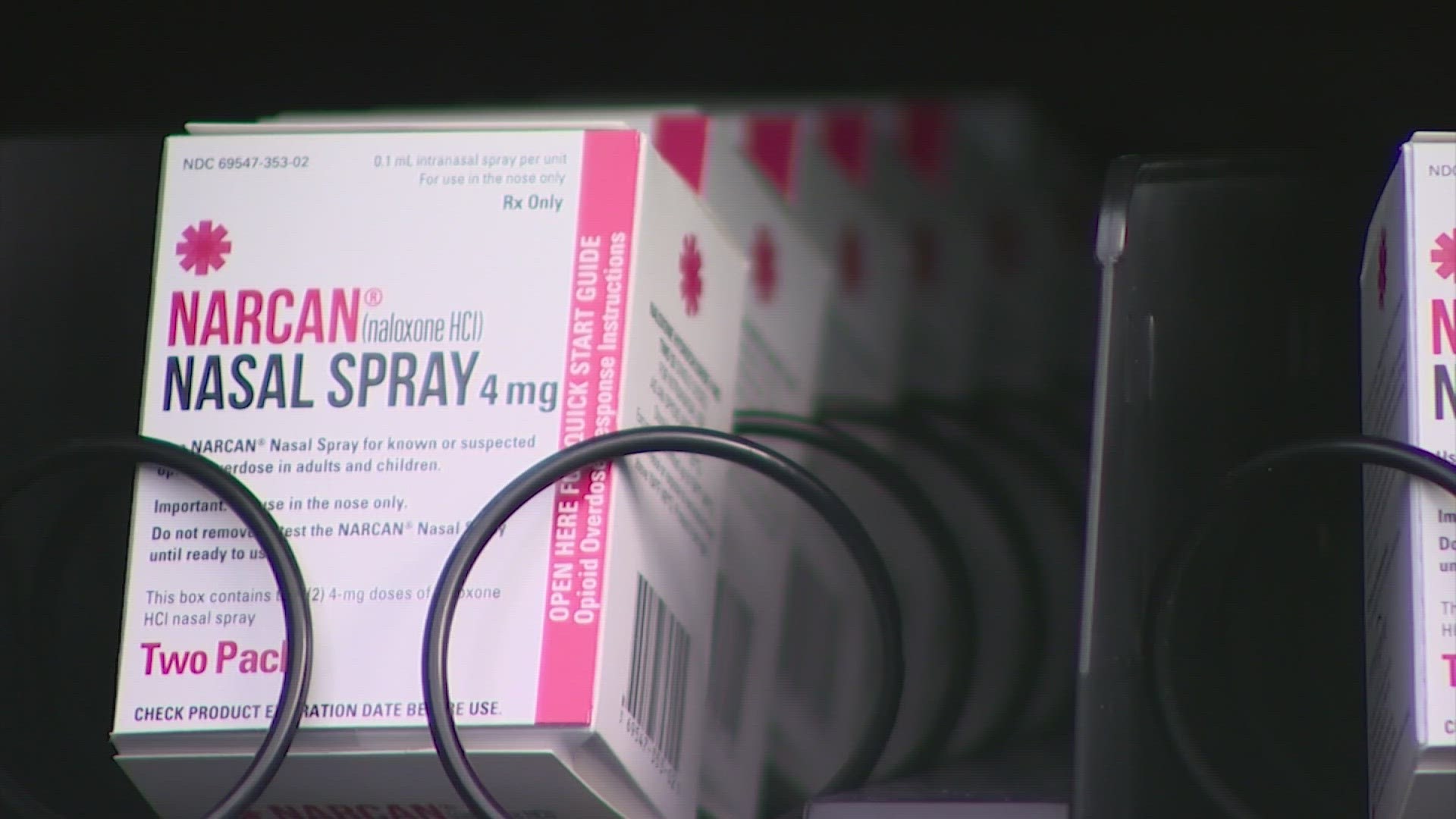TULALIP, Wash. — A vending machine providing fentanyl testing strips and opioid overdose reversal medication is now available at a tiny home village on the Tulalip Indian Reservation.
Addressing addiction on the Tulalip reservation has always been a heavy lift. Few people on the reservation understand that better than Rico Jones-Fernandez. He lost his best friend, a roommate, a cousin and his mother – all to overdoses.
"You spend a lot of time wondering what you could've done different, what you could've done more," Jones-Fernandez said.
In an effort to do more, Jones-Fernandez became an outreach worker and helped bring a new vending machine to the reservation.
The machine doesn't offer soda or candy. What's inside is much more valuable.
For the very first time, a free vending machine providing fentanyl testing strips, the opioid overdose antidote Narcan, along with other survival supplies is open for business.
"I think it's very important. You never know how many lives this machine will save," said one outreach worker, as he filled the machine.
The unit is located at the tribe's new pallet shelter village – a tiny home community where people are allowed to use drugs. The mentality is to get people housed first, offer treatment and in a worst-case scenario have live-saving tools at their fingertips.
"If we want to lower overdoses we need to get it directly into the hands of people who use drugs, and this is a good way to do that," Jones-Fernandez said.
The vending machine was given to the Tulalip for free by a needle exchange program in Tacoma. Outreach workers say it will remain fully stocked until it's no longer needed.
American Indians and Alaska Natives had the nation's highest rate of substance abuse and dependence in 2017 at 12.8%. Native Americans make up less than 2% of the U.S. population but 10% of the homeless population. They are nearly twice as likely as whites to suffer from addiction.
For Jones-Fernandez, the vending machine isn't just dispensing help, it's providing hope.
"At least you know at the end of the day you did everything you could," he said.

